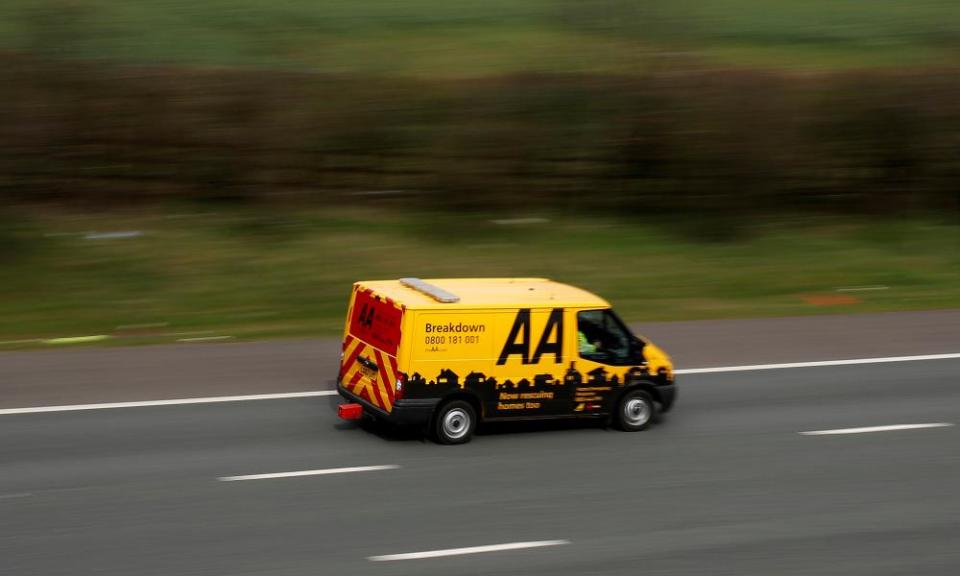AA agrees £219m takeover deal with private equity investors

The AA has agreed a £219m takeover deal that will return the motoring group to the hands of private equity investors, who will also take on its large debt pile.
The investors, TowerBrook and Warburg Pincus, said they would also inject £378m of new investment into the business.
The AA has endured a torrid time since its previous private equity owners floated it on the stock exchange six years ago at 250p a share, valuing the equity at £1.4bn. The shares hit a low of 15p this year as concerns mounted over its ability to pay off £2.6bn in debts.
The AA, which was founded in 1905 as the Automobile Association, had debts of £3bn when it floated in 2014. The private equity firms CVC, Permira and Charterhouse made £1.2bn in the float.
The group, which provides roadside assistance as well as services such as insurance and driving lessons, has been the subject of complex and repeatedly extended negotiations between multiple private equity investors since the debt concerns mounted over the summer. It previously received bids from Centerbridge and TowerBrook, a spinout from a hedge fund founded by George Soros, and separate offers from Platinum Equity and Warburg Pincus.
Under the agreed takeover, AA shareholders will be entitled to receive 35p a share, a 40% premium to the closing price on 3 August when the existence of multiple offers was first announced. However, the price is 40% lower than the value hit as recently as January, before the pandemic.
The private equity groups said they already had backing for the buyout from shareholders, who control about 16% of the AA’s shares, including the hedge fund Davidson Kempner.
The consortium said it “recognises that the core strengths of the AA lie in its iconic brand, market-leading positions, and skilled and committed workforce” but it believed the business had been held back as a result of underinvestment and high levels of debt.
It plans to invest in upgrading the AA’s infrastructure and offer new products and services through its breakdown insurance division. The company’s driving schools and financial services also have “opportunities to better serve the membership with new products and services from a brand that is held in very high regard and trust by consumers”.
John Colley, the associate dean of Warwick business school, said private equity owners might have plans to restructure the business, including selling parts of it or potentially cutting jobs.
“It is a strong brand with good market positions but in very competitive markets, so it is easy to envisage more cost-cutting,” he said. “That does not augur well for the workforce.”
The offer documents said there were no plans for “any material change to the overall business model and strategy” that would affect workers, or for any sales of parts of the business.
TowerBrook and Warburg said customer service levels would need to be high to “create a better business for the long term, at a time when the motoring sector will face both challenges and opportunities with the shift away from fossil fuels”.
John Leach, the chair of the AA, said: “The AA is a great company with a long and illustrious heritage, a highly respected brand and committed employees providing a high-quality service to its members and customers.
“In recent years, under new management, the AA has made strong progress with strategic and operational improvements and is demonstrating resilient trading performance through Covid-19.”

 Yahoo Finance
Yahoo Finance 